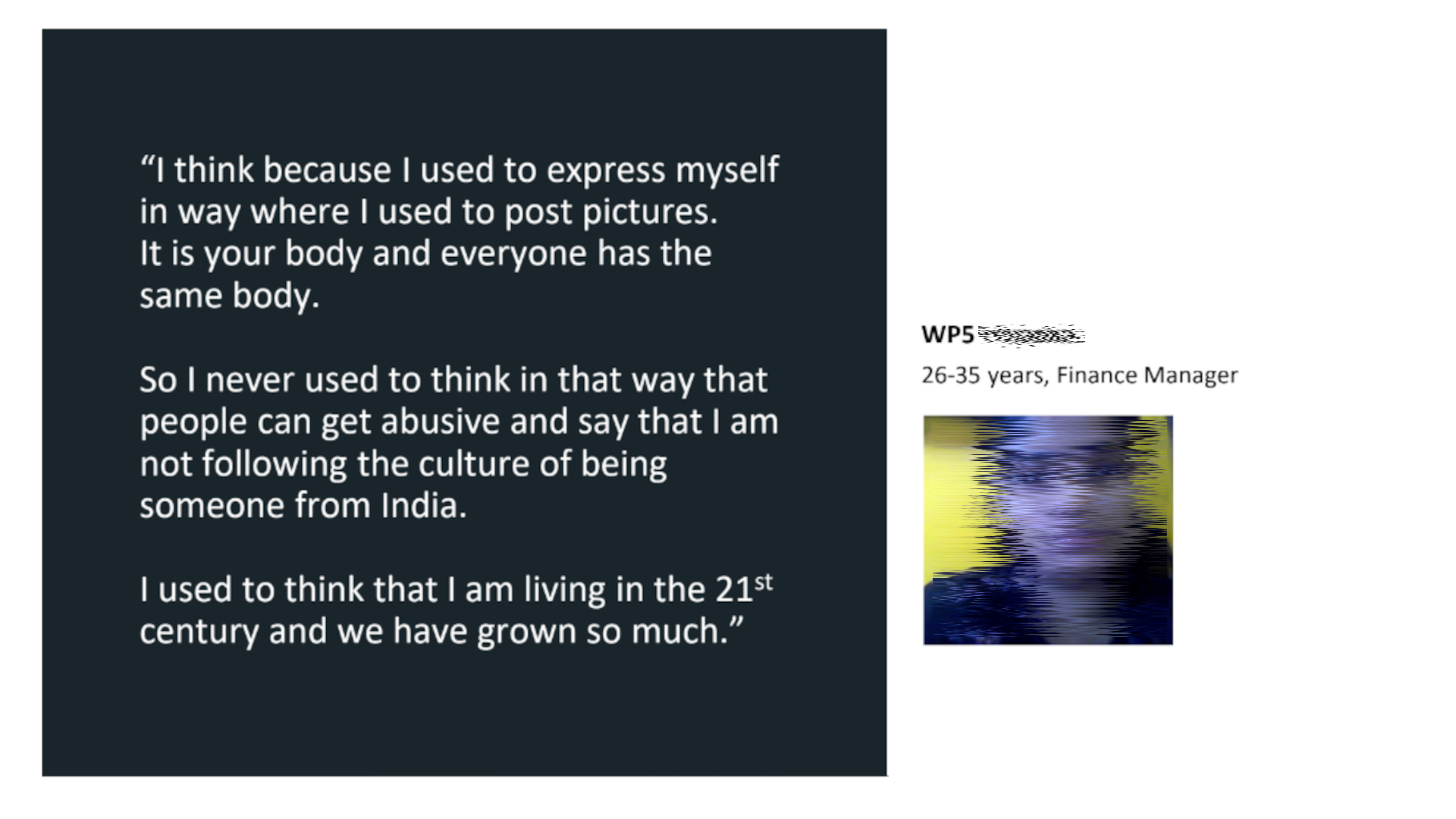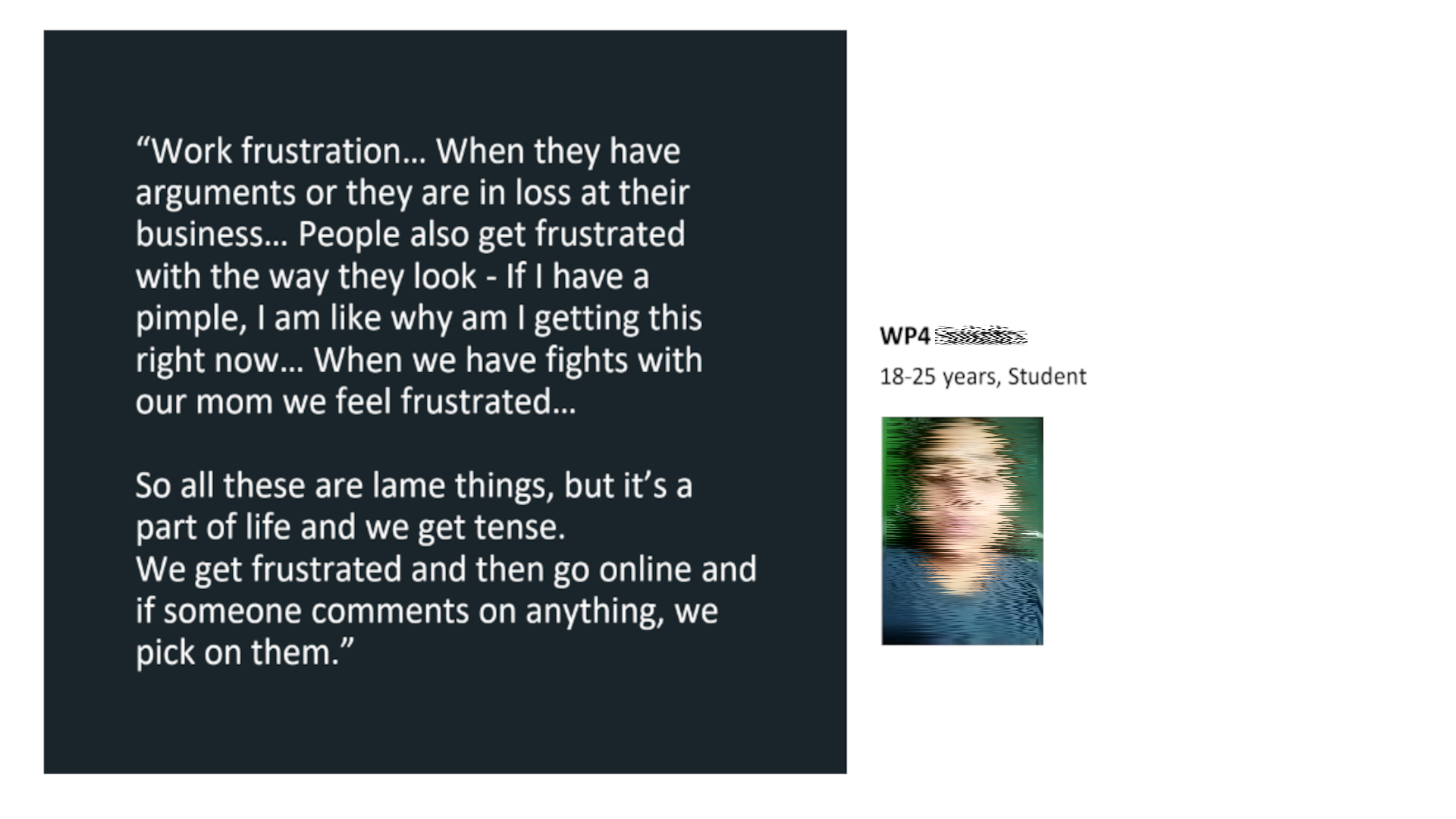Social Impact Research
Investigating ways by which Indian users of digital products and services might be supported to feel safer online
Client: Confidential
Timeline: 8 weeks
Sample Size: 30
Locations: Indian Metro’s and Tier 1 Cities
To better protect and support its global user base, a multinational tech company set out to understand the experiences of users from various countries who had encountered different forms of online abuse.
Anagram Research led the India leg of this important study.
To focus on the most vulnerable users, participants were carefully selected to represent marginalized gender, sexuality, caste, and religious identities.
Commissioned during the COVID pandemic, the study had to be meticulously crafted.
The challenge was to navigate the challenges of social distancing, while fostering the rapport needed for participants to feel comfortable discussing and sharing their experiences about this sensitive topic.
Freed from geographic constraints due to remote methods, we recruited participants from metros and Tier 1 cities across India, prioritizing those whose backgrounds were most relevant to our research goals.
The study began with a five-day diary exercise that offered rich, longitudinal insights and gently prepared participants for the more intensive in-depth interviews that followed.
Interviews were conducted remotely, with the option to disable cameras. While most chose to remain visible, this flexibility created a sense of control and comfort, allowing participants to open up in ways that might not have been possible in person.
The outcome of this research was a comprehensive insights presentation that helped our client gain a deeper and nuanced understanding about online abuse experiences.
Our report included insights into abuse catalysts, perpetrators of abuse, factors that motivate abusive behavior and research based guidelines.


Through our research, we equipped our client to design culturally sensitive interventions and embed socio-linguistic context into tools designed to support victims and witnesses.
Contributing to how a global tech leader defines and addresses digital harm was both meaningful and impactful, since our work could potentially improve the online experiences of millions worldwide.
We look forward to a future where digital products and support systems are more inclusive, empathetic, and grounded in the real needs of users.
This research had a deeply meaningful impact on participants as well.
Many shared that being part of the study made them feel heard, respected, and supported. The opportunity to voice their experiences provided a sense of relief – helping them process difficult emotions, ease feelings of isolation or self-blame, and feel less alone in what they had been through.